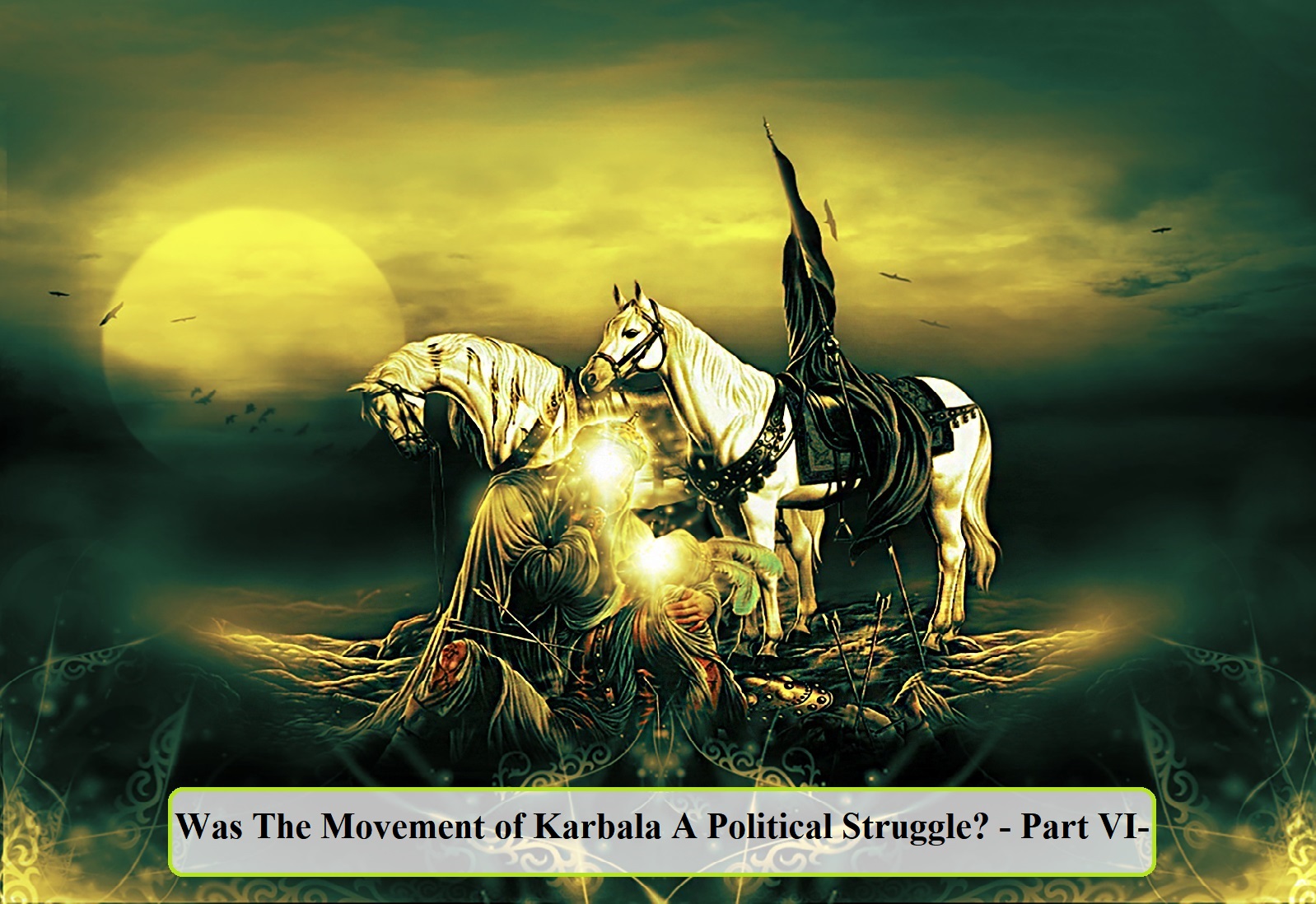Response 3: Had Imam al-Hussain (a) sought temporal victory, he would not have discouraged people joining him or brought his womenfolk or children for a war.
Accodrding to an article by Themuslimvibe.com, the events of Karbala and his impending martyrdom were not unknown to Imam al-Hussain (a). It is a point of agreement amongst Muslims that the Prophet Muhammad (s) had been informed of the brutal martyrdom of his grandson by the Arch Angel Jibrael, who had then conveyed the forthcoming events to his family. Given that Imam al-Hussain (a) was aware that this movement would require sacrificing his life, this begs the question how could he expect temporal authority from it.
In fact, despite the plethora of invites and pledges of allegiance, Imam al-Hussain (a) knew that he would end up with little support in the end. Upon the increase of threats upon his life, he broke his Hajj citing his desire to keep the sanctuary of the Ka’ba free from violence and departed for Kufa. En route meeting Hammam ibn Ghalib, famously known as al-Farazdaq, Imam al-Hussain (a) asked him, “Tell us the news of the people you have left behind you” to which he replied, “The hearts of the people are with you, but their swords are with Banu Umayyah.” The Imam answered, “True. The decree is Allah’s, and Allah will do what He wishes.” Both the foreseen knowledge of martyrdom and his understanding of the reality categorically prove there being no attempt to prize temporal authority from Yazid.
Of particular significance is Imam Al-Hussain’s (a) choice of army. Leaving Medina for the last time, his half brother Mohammed al-Hanafiyyah attempted to dissuade him from his cause. He replied, “The Prophet came to me in a dream and said, ‘Hasten toward Iraq! Allah desires to see you martyred!’” Upon realising he could not alter his path, al-Hanafiyyah asks why then do you bring womenfolk and children, to which the Imam (a) replies, “The Messenger of Allah told me Allah desires to see them in captivity.” Predicting his martyrdom and his families captivity then, does not indicate the expectation of a temporal victory, but rather there was something greater at stake, and that was the awakening of a sleeping and fractured Ummah.
This was testified to on the night before the battle when Imam al-Hussain (a) sought only the very creme of people to join him in his movement, specifically those without intent for worldly reward, but only those who seek to create a movement that would reverberate through the ages. Addressing his companions he said, “The enemy will not spare us for a single day. I permit all of you to go away freely, and I validate this for you. I lift up from you the responsibility of the allegiance and oath you have sworn to me. The darkness of the night covers you. Each of you may take hold of the hand of my family members are disperse into the villages, for these people desire only to kill me.”
After each of the companions re-pledged their allegiance, Qasim (a), the teenage son of Imam al-Hassan (a) stood and asked, “Am I too included in the list of martyrs?” Imam al-Hussain (a) questioned, “How do you consider death?” to which he replied, “It is sweeter than honey!” Crying, Imam al-Hussain (a) replied, “May your uncle be your ransom! You are one of them as will my infant son Abdullah be martyred too!”

